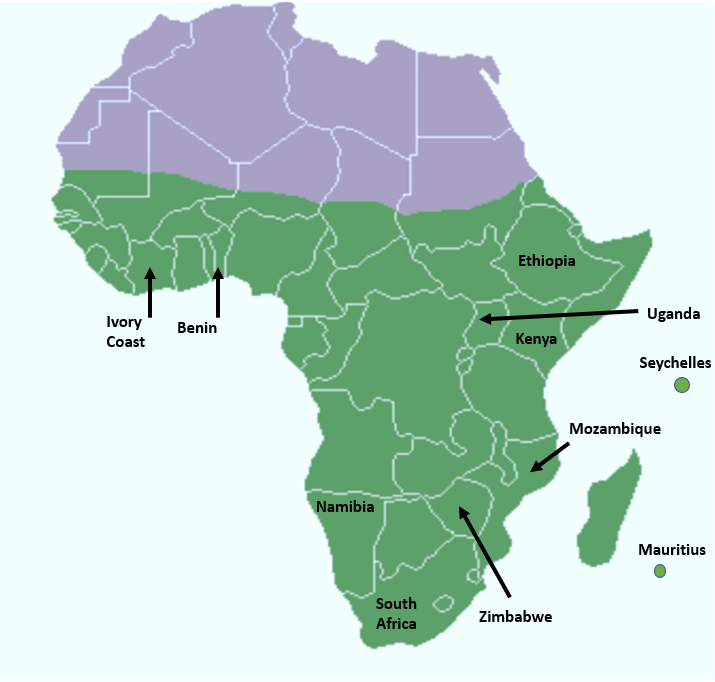Survival Rates for CRC Remain Low in Sub-Saharan Africa
Researchers find a country’s Human Development Index (HDI) affects colorectal cancer (CRC) outcomes even more than stage at diagnosis.
The Challenge
Colorectal cancer (CRC) is on the rise in sub-Saharan Africa. Reasons include many areas experiencing rapid socioeconomic development, urbanization, and lifestyle changes.
Previous studies have found that survival after a diagnosis of CRC is poor in sub-Saharan Africa mostly because of inadequate access to cancer screening and treatment.
But those studies used data from individual hospitals. There’s limited research using population-based survival data for CRC care in sub-Saharan Africa. Such studies are more relevant for a broad population and needed to guide and assess effectiveness of colorectal care programs.
The Research
To help fill that gap, Ahmedin Jemal, DVM, PhD, senior vice president, Surveillance & Health Equity Science at the American Cancer Society (ACS), worked with collaborators from Emory University in Atlanta, France, Germany, and 11 countries in sub-Saharan African (see map) to review data from 13 international, population-based cancer registries.

The green region is sub-Saharan Africa. The countries labeled provided cancer registry data for this study.
They examined age, stage at diagnosis, and survival at 1, 3, and 5 years after diagnosis based on country-level Human Development Index (HDI). HDI is determined by the country’s average life expectancy at birth, years of education, and income per person (per capita).
The authors reported their findings in a paper published in Cancer Epidemiology. They estimated that the relative survival rate at 5 years in these registry populations was 48%. That means that 5 years after being diagnosed, people who have CRC are, on average, about 48% as likely to be living as people who don’t have that cancer. In the United States, the relative survival rate at 5 years is 64% for colon cancer and 67% for rectal cancer.
Poorer survival was linked with a:
- Later stage at diagnosis
- Lower HDI
- Diagnosis at an age younger than 50 or older than 70
We randomly selected 1,707 people with colorectal cancer between 2005 and 2015 from 13 population-based cancer registries in sub-Saharan Africa. We found that survival for colorectal cancer remains low in sub-Saharan African countries, though estimates vary considerably by Human Development Index (HDI). People living in a low-HDI country had twice the risk of death than those in a high-HDI country, even when colorectal cancer was diagnosed at an early stage.”
Ahmedin Jemal, DVM, PhD
Surveillance and Health Equity Science
American Cancer Society

Jemal and his fellow researchers found the 5-year relative survival rate from people with CRC from countries with a low HDI was 31%. That’s lower than the 5-year survival rate in Europe during the late 1970s, when it was 40% for colon cancer and 38% for rectal cancer.
Even when diagnosed at an early stage, the risk of death among people with colorectal cancer is more than 2 times as high in low-HDI countries compared with high-HDI countries.
The authors note that the link between lower economic development and poorer cancer outcomes likely reflects the:
- Country health system’s strength, accessibility, and ability to provide timely and appropriate diagnoses and treatments
- Population's level of health awareness
Why It Matters
Jemal’s results suggest that improving access to prevention, screening, and early treatments in sub-Saharan Africa will help improve survival for colorectal cancer and other cancer types. Strengthening healthcare systems in this region is especially important because the incidence of colorectal cancer continues to rise in sub-Saharan Africa.


